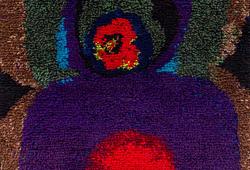Louis Leopold Robert
The brigand asleep
Canvas 46,5 x 37,5 cm.
Provenance
Bookmerchant Thelning, Stockholm;
his sale, Stockholm 1848, where purchased by Professor Anders Retzius (1796-1860);
by descent to his son Professor Gustaf Retzius (1842-1919);
Swedish Academy of Science (Gustaf Retzius´s bequest 1919);
deaccessioned by them in 2013
More information
A version of a composition which Robert is said to have painted fourteen examples of. One version, of the same size as the present picture, dated 1826, is in the Wallace Collection, London.
Briganti was the term used to describe Neapolitan rebels and outlaws during the Risorgimento, the 19th century ideological and literary movement for national unification and freedom from foreign occupation that emerged in Italy with the end of Napoleonic rule. The Briganti were a threath to public order but something of a tourist attraction for travellers on the Grand Tour. A number of briganti and brigantesse were to acquire almost legendary status. The iconography of the brigandage enjoyed great popularity during the Romantic age, due largely to the mythic imagery propagated by highly successful novels, plays, and operas. Because the brigand seemed at odds with his society, he quickly became recognized as yet another type of the rebellious Romantic hero, an endless wanderer who lived off the land, a vagabond oppressed by insensitive governments and forced into a life of crime in order to survive. His exploits were eagerly described with the same intensity and reverence usually accorded to more worthy heroes. In fact, for a brief time, the brigands were even officially recognized as national heroes because of their aid in ridding Italy of the French forces; in 1814 Pope Pius VII declared a general amnesty against their crimes as a gesture of reconciliation.

































